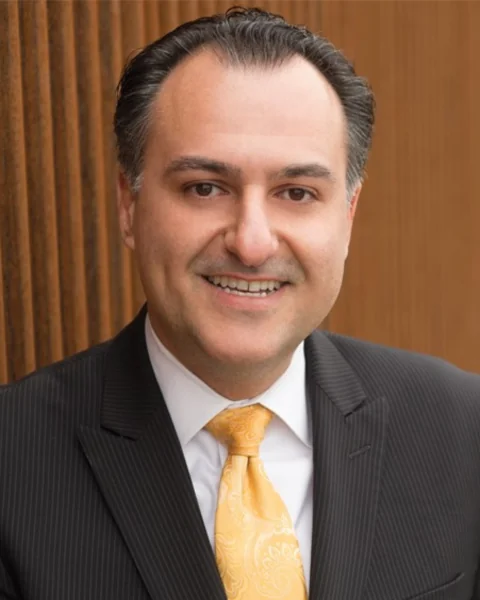
Sean Modjarrad, JD ’00, MAcc ’00, MBA ’00, is the managing shareholder and founder of MAS Law in Dallas, Texas. After attending the University of North Texas for his undergraduate degree, Modjarrad received his Juris Doctor, Master of Accountancy and Master of Business Administration from Samford University. He has dedicated his life to fighting for justice and providing a voice for the voiceless. Here he reflects on his legal education and career as a
first-generation lawyer.
What does it mean to you to be a first-generation lawyer?
SM: Being a lawyer holds deep personal meaning for me. As an immigrant, it symbolizes breaking new barriers within society, defying set cultural expectations and achieving goals. We migrated to the United States for the hope of a better future, and after attaining a bachelor’s degree, two master’s degrees and a Juris Doctor, it is clear that with the right support and path nothing is impossible.
Is there a moment in your life that inspired you to pursue a legal career?>
SM: It is truly the injustices I witnessed growing up within an immigrant family. As a child, I learned very quickly that those with nothing often have the most difficulty creating something. My father, for instance, a hardworking and intelligent restaurateur, struggled with negotiating lease agreements and contracts due to a lack of legal knowledge. This wasn’t because he didn’t understand the issues, but because he didn’t know how to navigate the legal complexities, and the cost of legal services was often prohibitive. Watching him grapple with these challenges highlighted the profound impact that proper legal guidance can have on individuals and small business owners. It made me realize how crucial it is to be an advocate for justice and to help those who might otherwise be left without proper representation or support. This experience ignited my passion for the legal profession and my commitment to making a meaningful difference in people’s lives.
How did Cumberland School of Law help shape you for your career?
SM: Cumberland played a crucial role in shaping and preparing me for my legal career. The curriculum combined with practical experiences, such as trial competitions and writing for the journal, provided me with a strong foundation in legal principles and real-world applications.
Additionally, the supportive folks at the law school helped instill in me the values, skills and, most importantly, the confidence necessary to succeed in the legal field. Cumberland doesn’t just teach theory; it imbues the ability to think through real problems and practice in a practical and procedural way, fundamental tools necessary to become a successful attorney.
How do you hope to inspire future generations to pursue a legal career?
SM: I hope to inspire future generations to pursue a legal career by sharing my journey and the challenges I overcame as a first-generation immigrant. By mentoring and providing guidance, I want to show them that their background does not define what they can become. It's your commitment to your dream and your determination to see it through that truly matter.
I believe in the power and the importance of diversity within the legal profession. It brings unique perspectives and enriches the legal field, making it more equitable and just. I aim to be a role model and mentor who encourages others from all backgrounds to follow their passion for law, knowing that their unique voices and experiences can, in turn, provide inspiration for generations to come.
What can future Cumberland lawyers do while in law school to prepare for a rewarding career?
SM: Future Cumberland lawyers can prepare by actively participating in trial competitions to gain practical, hands-on skills. These competitions provided me with invaluable opportunities to apply classroom knowledge to real-life scenarios, sharpening essential skills such as research, writing and oral advocacy. Really, it’s about getting outside of the classroom any way you can and putting to practice what you’ve been taught. For example, I had the confidence and the know-how to try my first case (bench trial) within only a week of being licensed as a lawyer.
Additionally, future lawyers need to clearly understand the difference between the profession of law and the business of law, and they need to know how to maneuver in each arena. Those days that we relied on just being a lawyer are gone, as these days, lawyers need to have a clear understanding and grasp of the business world as well.
Ultimately, what’s important is keeping one simple thing in mind: focus on doing a great job for every client. Accomplish this by maintaining a commitment to ethics, professionalism, and client advocacy, and you will ensure long-term success in the legal profession.
This story was originally published in the 2024 edition of Cumberland Lawyer magazine. Read the complete issue here.
